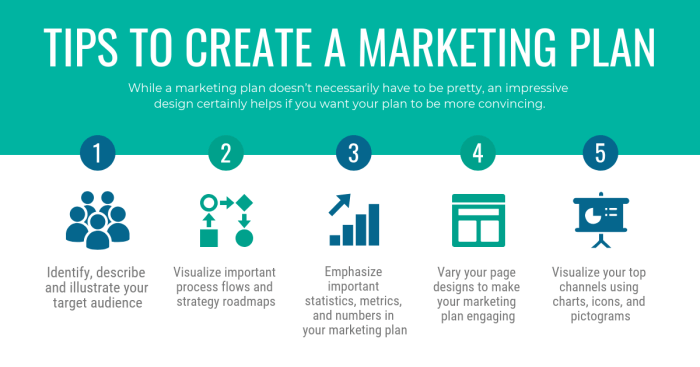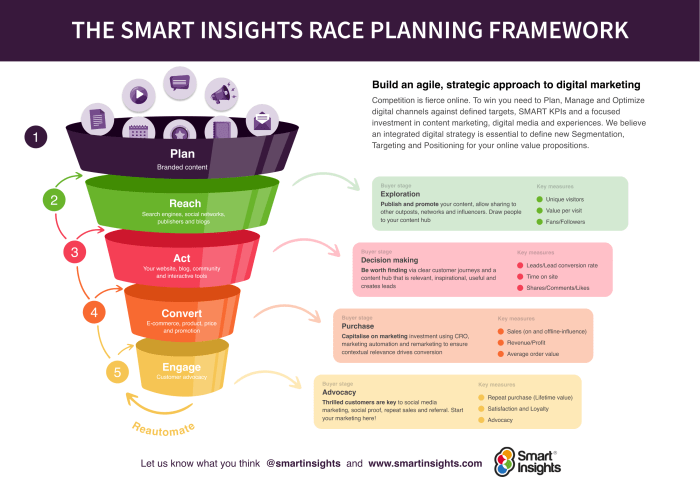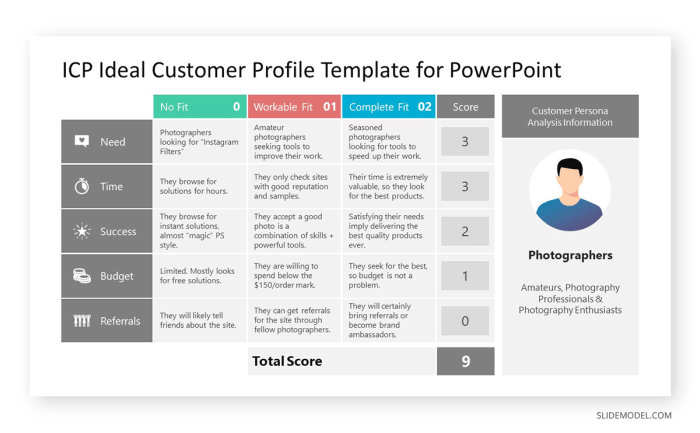Embark on a journey to craft a comprehensive marketing plan within just 7 days, ensuring strategic success and impactful results.
From setting goals to analyzing competitors and executing campaigns, this guide covers it all.
Planning Phase

In the planning phase of creating your marketing plan in 7 days, it is crucial to lay a strong foundation for your strategy.
Define Your Marketing Goals
To kick off your plan, start by clearly defining your marketing goals for the next 7 days. These goals should be specific, measurable, achievable, relevant, and time-bound (SMART). Whether it’s increasing website traffic, generating leads, or boosting sales, make sure your goals are aligned with your overall business objectives.
- Set a goal to increase social media engagement by 20% within the week.
- Aim to generate 50 new leads through your email marketing campaigns.
- Focus on achieving a 10% increase in online sales by implementing targeted promotions.
Identify Your Target Audience and Create Buyer Personas
Understanding your target audience is essential for crafting effective marketing strategies. Conduct research to identify your ideal customers and create detailed buyer personas. These personas should include demographic information, interests, pain points, and buying behaviors to tailor your messaging and tactics effectively.
- Research and define your target audience segments based on age, location, and preferences.
- Create buyer personas that represent different customer profiles and their specific needs.
- Use tools like surveys, interviews, and analytics to gather insights into your audience’s behavior.
Research Your Competitors’ Strategies
Analyzing your competitors’ strategies can provide valuable insights into market trends, gaps, and opportunities. Identify your key competitors and evaluate their strengths and weaknesses to refine your own marketing approach. Look at their messaging, channels, and tactics to differentiate your brand effectively.
- Conduct a competitive analysis to identify direct and indirect competitors in your industry.
- Analyze your competitors’ marketing strategies, including content, social media presence, and advertising campaigns.
- Identify gaps in the market that your competitors may have overlooked and leverage them to your advantage.
Develop a Budget Allocation Plan
Allocating a budget for your marketing activities is crucial to ensure that you have the resources needed to execute your plan effectively. Determine how much you can afford to spend on different channels and initiatives, keeping in mind your goals and expected ROI. Prioritize high-impact strategies that align with your budget constraints.
- Allocate a portion of your budget to digital advertising on platforms like Google Ads and Facebook.
- Invest in content creation and distribution to boost organic reach and engagement with your target audience.
- Consider outsourcing certain marketing tasks or hiring freelancers to maximize your budget effectively.
Strategy Development

Developing a solid marketing strategy is crucial for the success of your business. This involves choosing the right marketing channels, creating engaging content, designing promotional offers, and developing a social media strategy to effectively reach and engage with your target audience.
Choosing the Right Marketing Channels
- Identify your target audience and select marketing channels that align with their preferences and behaviors.
- Consider your budget constraints and choose cost-effective channels that will provide the best return on investment.
- Utilize a mix of online and offline channels such as social media, email marketing, paid advertising, and events to reach a wider audience.
Creating a Content Calendar
- Artikel the type of content you plan to share each day to ensure consistency and relevance to your audience.
- Include a variety of content formats such as blog posts, videos, infographics, and user-generated content to keep your audience engaged.
- Schedule content in advance to stay organized and maintain a steady flow of communication with your audience.
Designing Promotional Offers or Campaigns
- Develop attractive promotional offers or campaigns to attract new customers and retain existing ones.
- Consider seasonal trends, holidays, and special events to create timely and relevant promotions that resonate with your audience.
- Track the performance of your offers and campaigns to identify what resonates with your audience and adjust your strategy accordingly.
Developing a Social Media Strategy
- Define your goals and objectives for social media to align with your overall marketing strategy.
- Identify the platforms where your target audience is most active and tailor your content to suit each platform’s unique characteristics.
- Engage with your audience by responding to comments, messages, and mentions to foster relationships and build brand loyalty.
Implementation and Evaluation

Once you have finalized your marketing plan, it is time to put it into action. Implement your marketing activities according to the plan you have created and follow through with consistency and dedication.
Monitoring the performance of each marketing campaign is crucial to understanding its effectiveness. Make sure to track the progress of your campaigns daily and collect relevant data to analyze later on.
Execution of Marketing Activities
Execute each marketing activity as per the timeline and strategy Artikeld in your plan. Ensure that all tasks are completed efficiently and effectively to achieve the desired results.
Monitoring and Analysis
Monitor the performance of each marketing campaign daily to gather data on key metrics such as reach, engagement, and conversion rates. Analyze the data collected to measure the success of your efforts and identify areas for improvement.
Adjusting Strategy
Based on the results and feedback received from your analysis, be prepared to adjust your marketing strategy accordingly. Make necessary changes to optimize your campaigns and improve overall performance.
Closure

In conclusion, follow this structured approach to create a robust marketing plan in a week, setting your business up for growth and success.